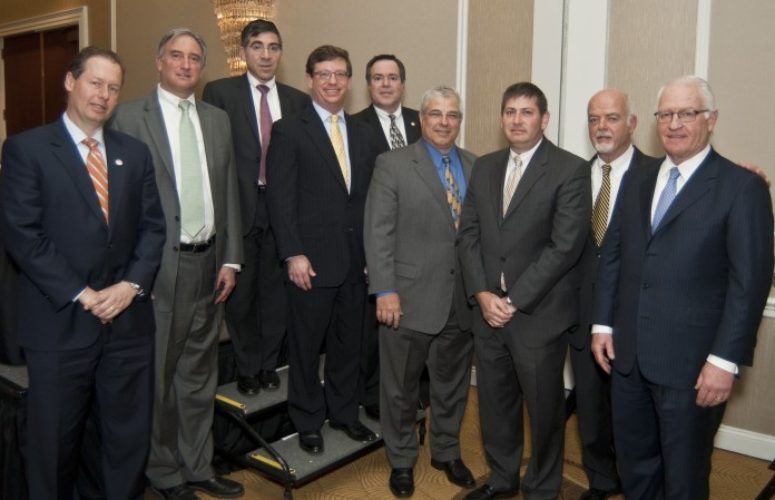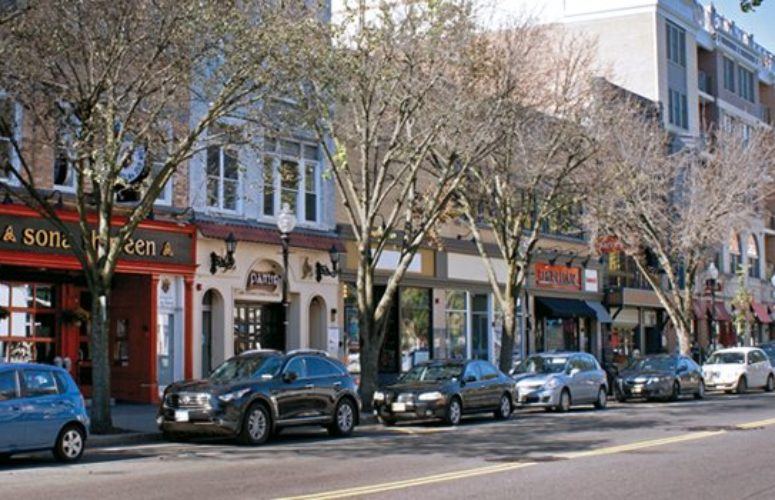
IOREBA’s Developer’s Night Panel Speaks on the Repositioning of Corporate Campuses in NJ
On Apr 9, 2015The Industrial and Office Real Estate Brokers Association of the New York Metropolitan Area (IOREBA), recently hosted its 23rd annual Developer’s Night event at the Marriott at Glenpointe Hotel in Teaneck. Hundreds of guests from the commercial real estate industry were on hand for the event, which highlighted a panel of New Jersey’s prominent developers and politicians discussing “The Repositioning of Corporate Campuses” within the state.
“How will suburbia compete in New Jersey, with its aging corporate campuses that are becoming functionally obsolete and the explosive growth and popularity of urban areas such as New Brunswick and the Gold Coast,” Jeffrey Garibaldi, president of The Garibaldi Group, asked the panelists.
The two developers on the panel Ralph Zucker, president of Somerset Development; and Peter Cocoziello, president and CEO of Advance Realty Group; responded with confidence noting that they each have acquired several million-square-foot corporate campuses that were vacated by major corporations, and working together with local municipalities and communities, are repositioning the sites into unique live-work-play centers that will bring new jobs and return rateables to the municipalities.
“Even with the millennial movement to urban areas, we see that not everyone wants to live and work in cities like Hoboken and Jersey City, and we also realize that many of the state’s suburban corporate campuses are aging properties with archaic zoning in place,” commented Cocoziello. Cocoziello’s company snagged up the former Sanofi-Aventis site in Bridgewater, and is repositioning it into a unique site that will offer office and R&D space, hotels and restaurants. “We are taking an already attractive site, which is nearby shopping malls, golf courses and hiking trails, and creating a unique, walkable town that will appeal to the community and corporations,” he added.
Garibaldi added that, “New Jersey is vulnerable not only due to the transformations taking place in real estate development, but also from competition from other hot beds across the country like the bio pharma sectors in Boston to the decreased cost of living options offered by southern states.”
“New Jersey doesn’t need more office space, it needs better office space, most of the office space in the state has outlived its useful life,” said Ralph Zucker, president of Somerset Development, whose firm is repositioning the former Bell Labs site in Holmdel. “It took a long time to communicate our vision for this site to the community, but we committed to our vision and this project will be the lifeblood of the community,” he added.
With the departure of major corporate users from the state, the loss of rateables is significant, and municipalities therefore have to address current zoning for these properties and embrace developers’ concepts for redevelopment. Not only are there economic disadvantages, but towns can lose thousands of jobs, and local business can suffer as well. While PILOT (Payment in Lieu of Taxes) programs oftentimes can help real estate tax burdens put on developers looking to reposition these properties, panelists added that local municipalities really need to step up to the plate and work with the state to make it easier to do business in New Jersey.
Mayors Eric J. Hinds (Holmdel) and Daniel J. Hayes, Jr., (Bridgewater) noted that it is necessary for municipalities to work closely with developers to achieve goals for rezoning and creating proper tenant mixes, as well as to develop strong relationships with the community by developing marketing programs that will allow them to realize the vision for the properties.
From the developers’ perspectives, there is significant capital that is required to redevelop and retrofit these aging corporate campuses. If corporations that own these properties can readjust purchase prices, developers can more successfully redeploy and reposition the properties into sought after environments for corporations and residents alike. Couple the re-valuing and repositioning of these properties with New Jersey’s many incentive programs available to corporate end-users, developers expect that they will be able to transform the landscapes of these aging corporate campuses, and New Jersey will be well-positioned to retain employment and foster new employment growth.
Related Articles:





